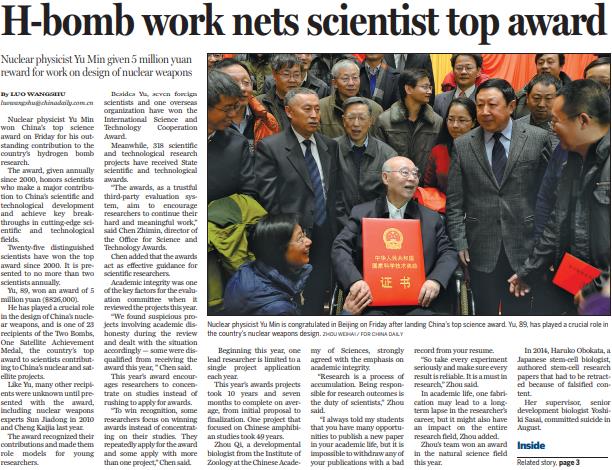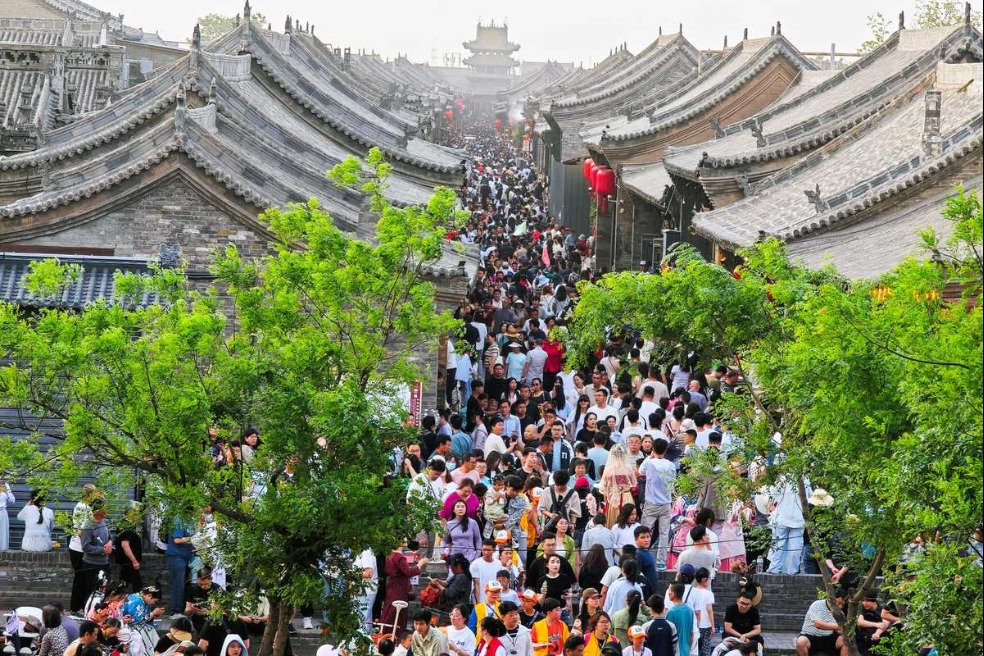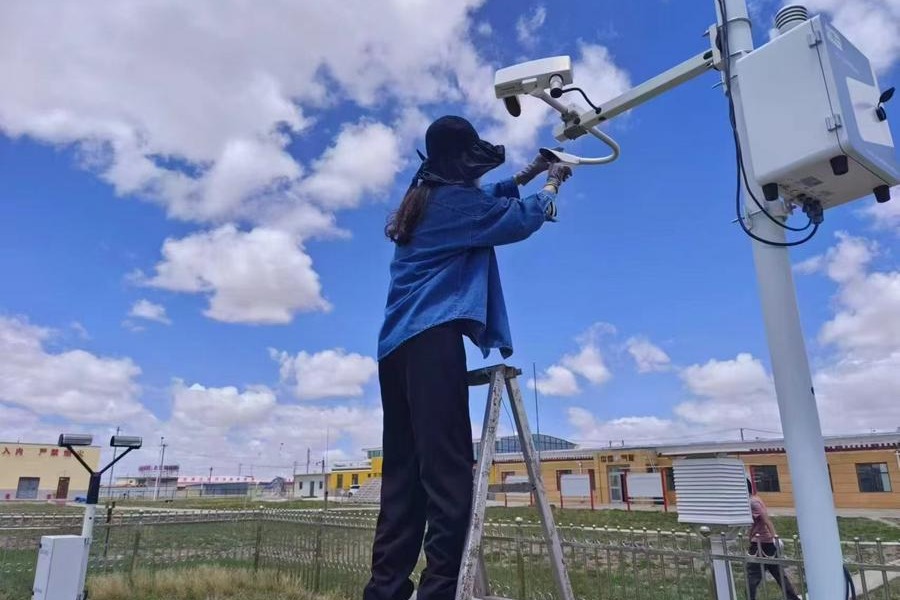This Day, That Year: June 17


Editor's note: This year marks the 70th anniversary of the founding of New China.
On June 17, 1967, China successfully exploded its first hydrogen bomb in the Lop Nur Desert in the Xinjiang Uygur autonomous region.
The successful test shook the world as it had taken only two years and eight months for China to develop a hydrogen bomb after testing its first atomic bomb in October 1964.
The explosive power was 150 times that of the atomic bomb the United States dropped on Hiroshima, Japan, during World War II. It marked a breakthrough in China's nuclear development.
On July 29, 1996, China conducted its 45th and last nuclear test. The next day, it began its pledged moratorium on nuclear tests. Also in 1996, China signed the Comprehensive Test Ban Treaty.
In the following year, China ratified the Chemical Weapons Convention.
In January 2015, nuclear physicist Yu Min won China's top science award for his outstanding contribution to the country's hydrogen bomb research, as seen in an item from China Daily. Yu played a crucial role in the design of China's nuclear weapons. Many other recipients were unknown until they were also presented with awards. Yu died in Beijing on Jan 16 at the age of 93.
Nuclear power is also changing China's energy mix. In December 1991, China's first nuclear power reactor - at the Qinshan Nuclear Power Plant in Zhejiang province - was connected to the grid.
Since then, the country's nuclear energy sector has boomed.
There are more than 40 reactors in operation and another 20 under construction, according to the Ministry of Environmental Protection.
By the end of next year, China aims to have reactors producing 58 gigawatts of power, and plants under construction with output capacity of 30 GW.
- From muggles to birders, quiet hobby finds its wings
- Two-way tourism between China, Europe gathers pace over May holiday
- Nanjing Massacre survivor Liu Guixiang dies
- Macao's resident deposits rise in March
- Taiwan youth seek their career in Chinese mainland
- Xi urges youth to contribute to Chinese modernization





































